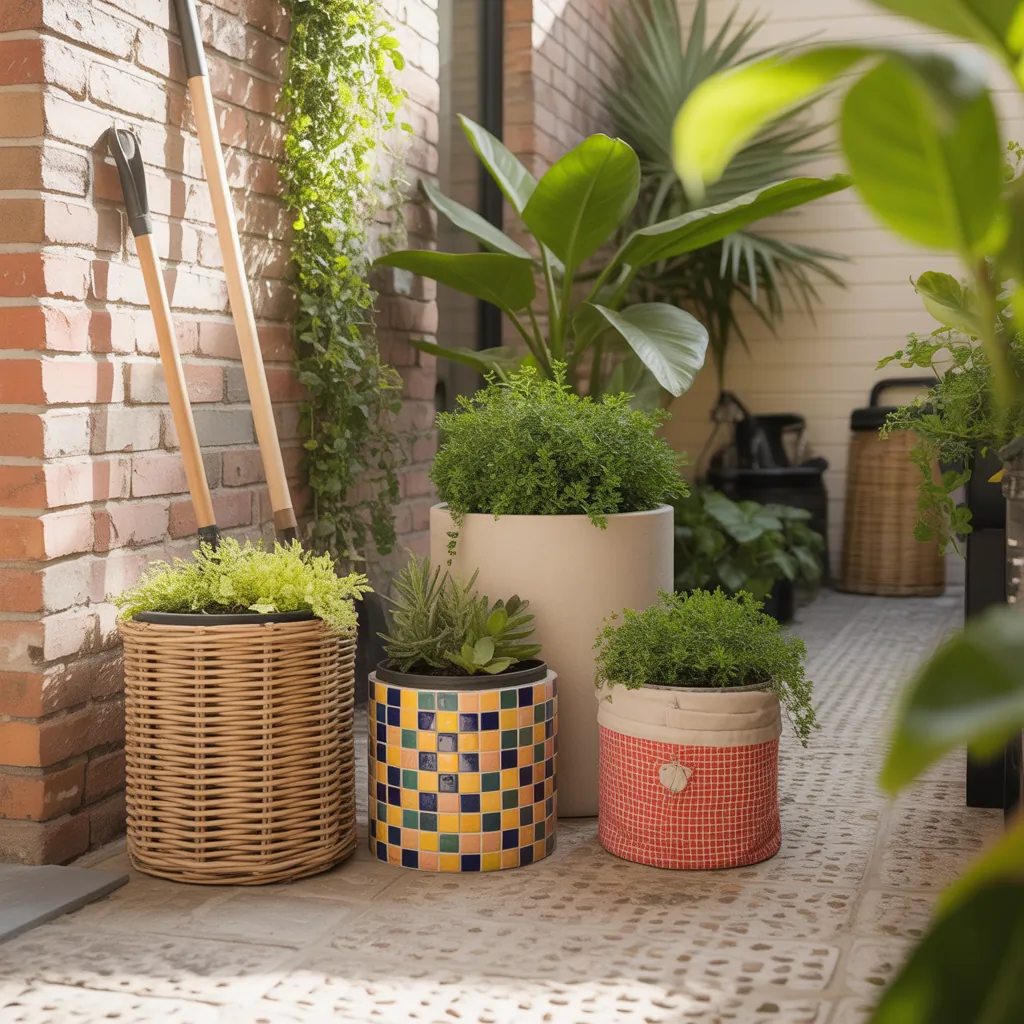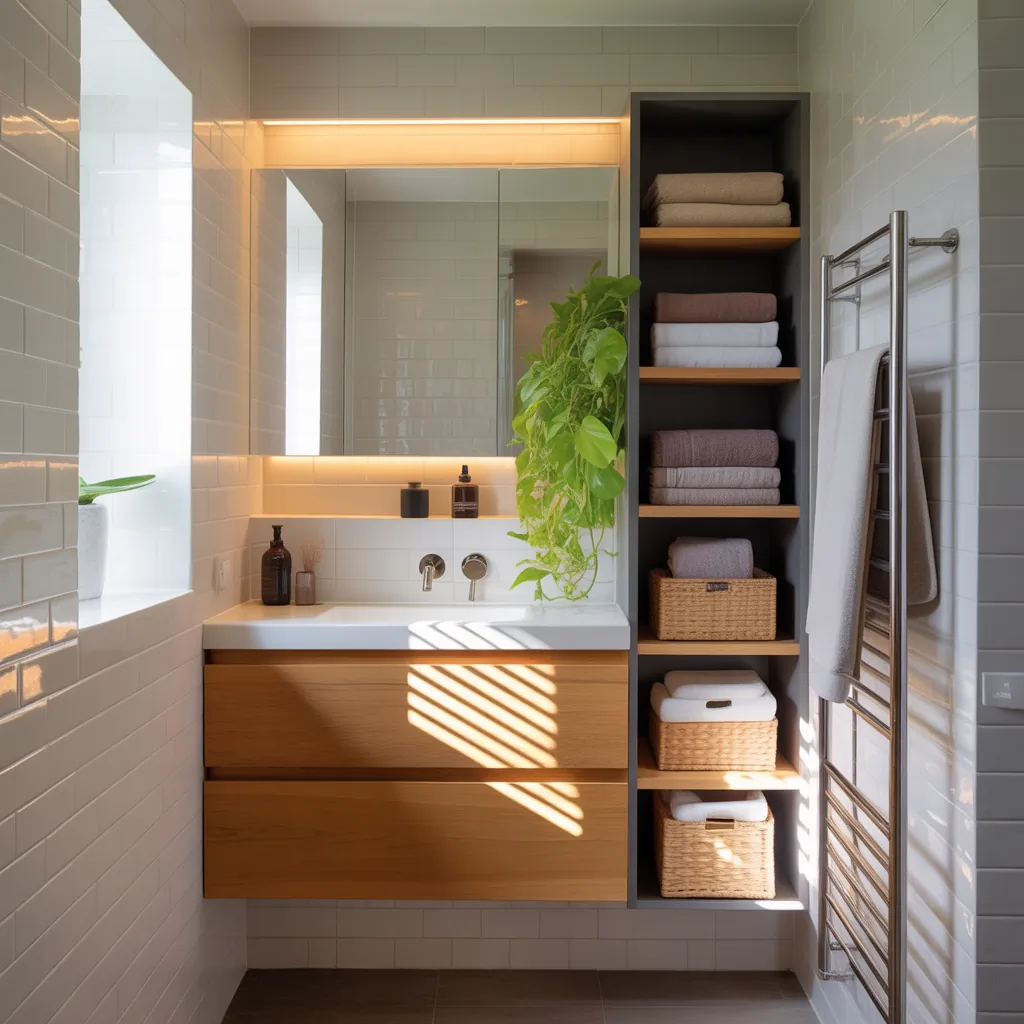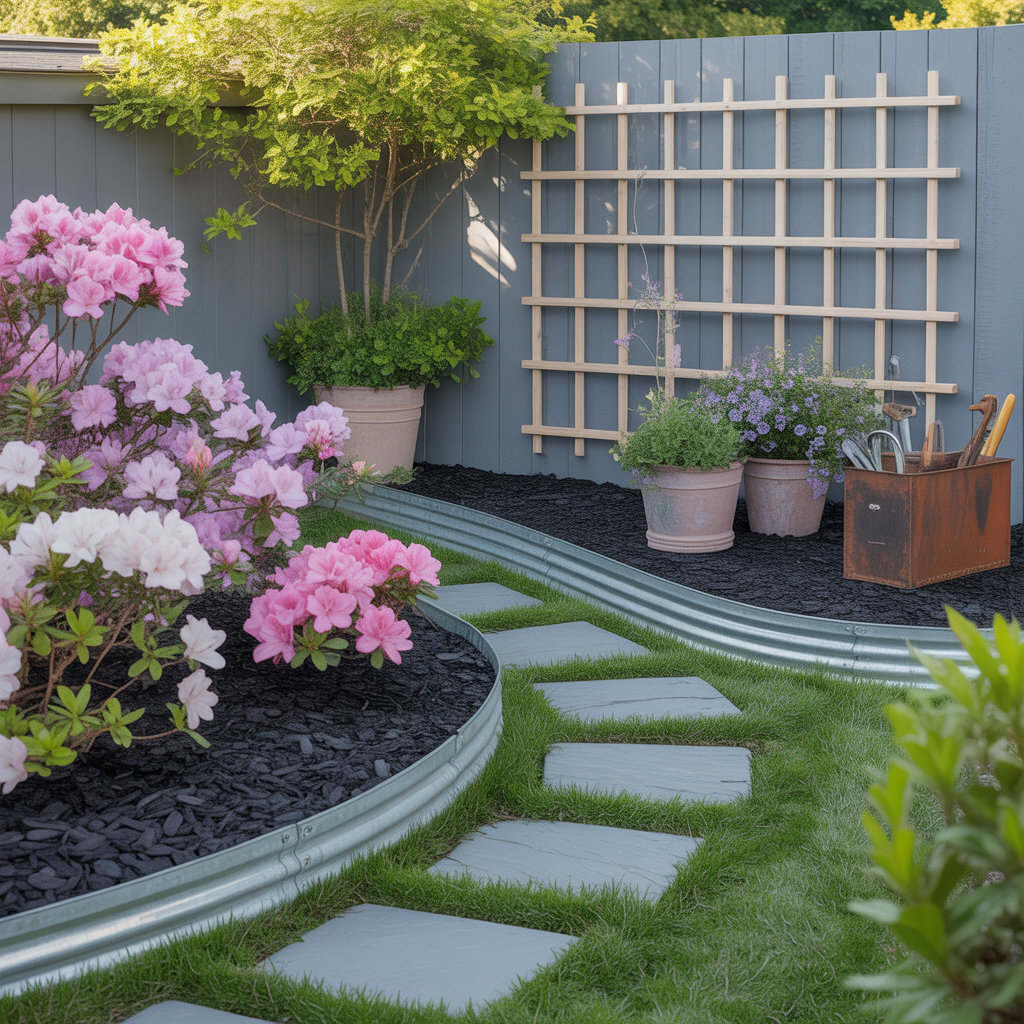Ever stared at an ugly plastic nursery pot sitting prominently on your patio or countertop and wondered how to make it disappear without spending a fortune? Whether you bought plants in basic containers or inherited mismatched pots, small planter fixes can transform a room. In this article you’ll find smart, practical planter covering ideas that are budget-friendly, kid- and beginner-friendly, and perfect for sprucing up indoor and outdoor spaces.
Why cover planters? The design and practical reasons
Covering pots is about more than looks. A stylish planter cover can: improve curb appeal, coordinate with room decor, protect delicate pots from weather, hide drainage or saucers, and give you a consistent aesthetic without repotting sensitive plants. Use these plant pot cover ideas to unify a collection of mismatched containers or to create a focal point for your plants.
Quick overview: Materials and tools you’ll use
- Common materials: jute rope, burlap, peel-and-stick wood veneer, wicker baskets, cement paints, thin plywood, cedar slats, fabric, and spray sealers.
- Tools: hot glue gun, staple gun, drill, sandpaper, paintbrushes, measuring tape, and zip ties.
- Basic supplies: scissors, screws, exterior wood glue, and planter liners (optional).
10 practical planter covering ideas you can DIY today
1. Rope-wrapped plant cover — rustic and budget-friendly
Why it works: Jute or sisal rope instantly turns a boring pot into a coastal or farmhouse accent. It’s durable and easy to apply.
Step-by-step:
- Clean the pot surface; dry completely.
- Start at the base with a dot of hot glue, press rope into glue.
- Wrap tightly upward, adding glue every few inches.
- Finish at the rim, trim excess rope, and secure with glue.
Tip: Seal with a clear matte spray if using outdoors.
2. Fabric planter covers — fast seasonal updates
Why it works: Fabric covers are washable, changeable by season, and perfect for indoor pots.
How-to: Measure pot circumference and height, cut fabric leaving a 1″ seam, sew or hot-glue seams, slip over pot; add a thin cardboard base for stability.
3. Stenciled or faux concrete paint finish
Why it works: Turn terracotta or plastic into chic concrete-style planters with specialized paint. Stencils let you add geometric patterns.
Tip: Use chalk or mineral paint for a modern farmhouse look; seal with outdoor polyurethane for longevity.
4. Basket and woven covers — instant texture
Why it works: Placing a plastic pot inside a woven basket or rattan planter cover adds warmth and hides unsightly saucers. Choose one size larger for a snug fit.
5. Wooden planter box surround — custom built look
Best for: Balconies and patios where you want a built-in planter feel without repotting.
Simple plan:
- Measure your pot(s).
- Cut thin cedar slats to create a box around the pot, leave gaps for drainage and airflow.
- Assemble with screws and wood glue; finish with a natural oil for outdoor use.
6. Macramé and hanging covers for vertical style
Why it works: Macramé plant hangers hide pots while adding boho flair. Great for small apartments and kitchen herb gardens.
DIY tip: Use cotton rope and follow a basic square-knot pattern; leave the pot removable for watering.
7. Painted basket liners — combine function and color
Turn an inexpensive seagrass basket into a waterproof planter by lining with a painted plastic bin or pot. Use bright colors for a cheerful accent.
8. Upcycled wooden crate planter cover
Transform old crates into rustic pot covers: sand, whitewash or stain, then slot the plant pot inside. Add felt pads underneath to protect surfaces.
9. Magnetic or removable covers for seasonal changes
For metal or thin-walled pots, create lightweight magnetic panels (with adhesive magnets) or velcro-backed fabric wraps to change the look by season.
10. Built-in shelf planter enclosures for a cohesive built-in look
Install shallow box frames on shelves to hide pots and their saucers, giving a built-in cabinet look without major carpentry.
Planter covering ideas for outdoors: weatherproofing and drainage
Outdoor covering needs different considerations: ensure coverings don’t trap excess moisture, allow airflow, and use rot-resistant woods like cedar or treated lumber. For wooden surrounds, line the interior with landscape fabric and maintain a gap from the pot to let water escape. For painted or faux-concrete finishes, always use a breathable primer and sealer designed for exterior use.
Design tips: matching covers to your decor
- Modern minimal: smooth painted finishes, geometric stencils, matte concrete-look paints.
- Farmhouse: jute rope, burlap wraps, whitewashed crates, simple wooden slats.
- Boho: macramé hangers, woven baskets, mixed textures and warm tones.
- Scandinavian: light wood, simple lines, neutral fabrics, and white or pale gray finishes.
Real-world advice: sizing, plant care, and budget-friendly hacks
- Size matters: Always measure pot diameter and height. Allow ~1/2″ clearance for fabric covers or baskets.
- Protect roots: If you plan to keep plants in temporary covers, ensure good drainage — raise pot on small feet inside the cover or use a liner.
- Budget hacks: Shop thrift stores for baskets and crates; use leftover trim or paint samples for quick finishes.
- Maintenance: Removable covers make watering easier. If permanent, consider a drip tray hidden beneath or a removable inner liner.
Planter Covering Ideas: Step-by-step makeover example
Project: Wooden slat surround for a large plastic pot (45 minutes)
- Measure pot circumference and height.
- Cut four plywood or cedar slats to size; sand smooth.
- Attach slats together with small corner brackets to form a box.
- Place pot inside box; add felt pads under the box if used indoors.
- Apply exterior oil or stain if used outdoors; allow to dry before returning plant.
Frequently Asked Questions
A: Yes. Choose a cover that slips over the existing pot (fabric wrap, basket, or rope wrap). For rigid surrounds, build a box with a removable top or slide the pot in horizontally if space allows. Always ensure drainage paths stay clear.
A: Use rot-resistant wood like cedar, apply an outdoor wood preservative or oil, and keep a small gap between the pot and the cover to prevent trapped moisture. Line the inside with landscape fabric for extra protection.
A: Not if you allow for drainage and airflow. Avoid fully sealing pots; use breathable materials or design a removable cover. Monitor soil moisture more frequently after adding covers to prevent overwatering.
Conclusion — Try one planter covering idea this weekend
With a few basic tools and materials you can pick one of these planter covering ideas and instantly elevate the look of any room or outdoor space. Whether you choose a rope-wrapped pot, a wooden surround, or a seasonal fabric cover, small updates create big impact. Ready to tackle more home upgrades? Check out our DIY projects, refresh a cooking nook with kitchen upgrades, or explore more home design ideas for continuous inspiration. Try one planter makeover today, share your results, and transform mismatched pots into coordinated decor.



